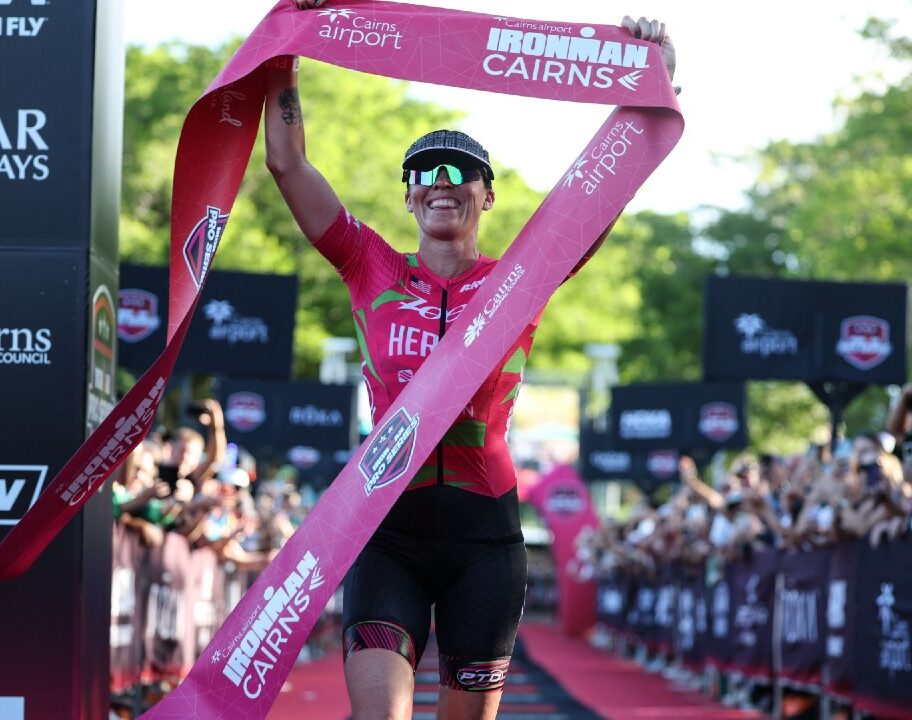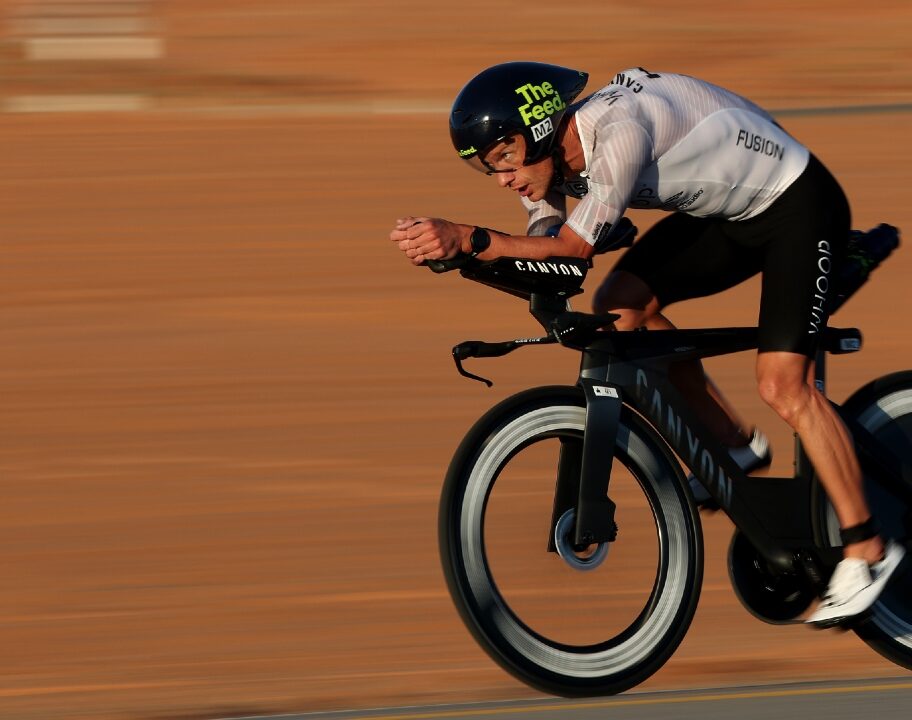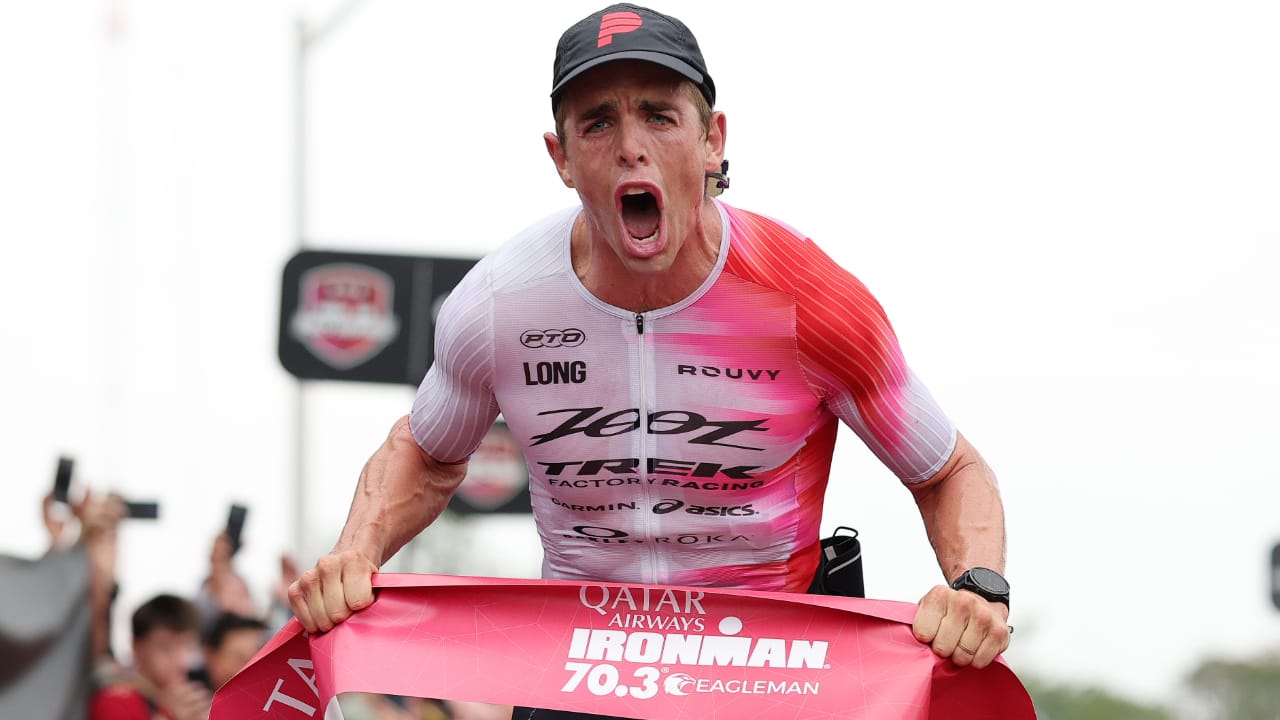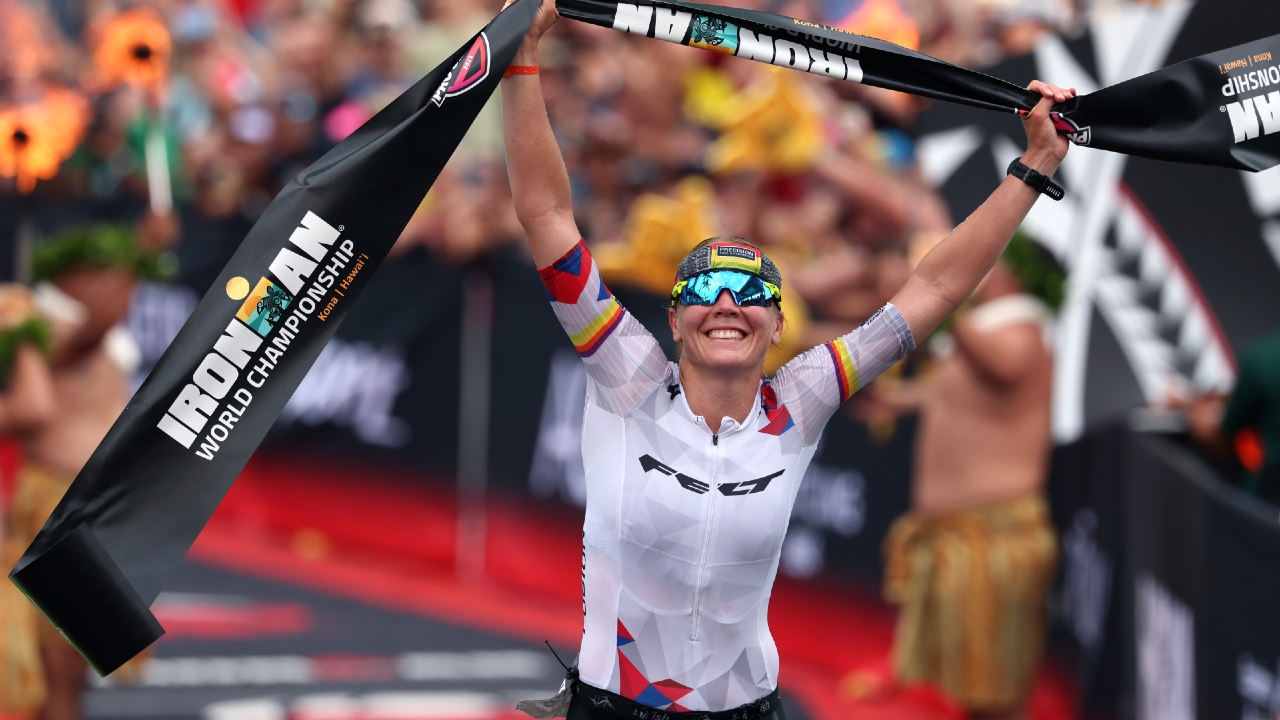The countdown is on for the IRONMAN 70.3 World Championship – in just a few short days, a stacked field of the world’s best PROs and top level age groupers will take the stage in Taupo, New Zealand ready to battle it out over 70.3 miles of swim, bike, run.
If you’ve been following the build-up to this year’s 70.3 World Championship and you’ve got a serious case of triathlon FOMO, here’s everything you need to know about how to qualify for the IRONMAN 70.3 World Championship, so you can find out how to get yourself on the start list next year.
IRONMAN 70.3 World Championship qualification process for age-groupers
To have a shot at qualifying for the IRONMAN 70.3 World Championship, you need to participate in an official IRONMAN 70.3 race during the qualification window. For example, if you want to qualify for 2025, the 70.3 races on the IRONMAN calendar from 6 July 2024 up until 29 June 2025 will offer qualifying slots for the 2025 Championship. Races after 29 June 2025 will offer qualifying slots for the 2026 70.3 Worlds.
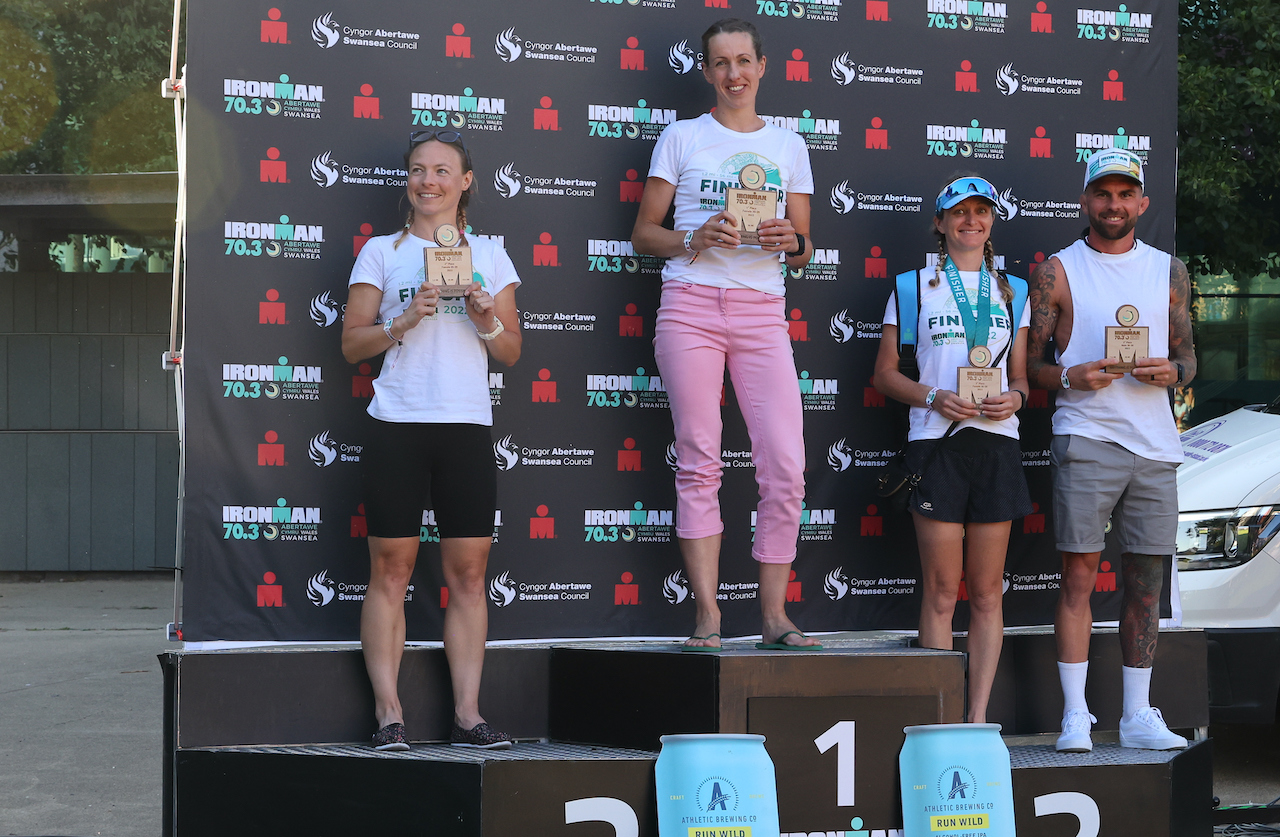
Every race is allocated a certain number of qualification slots. Some events have more slots than others – for example 70.3s that are part of the IRONMAN Pro Series circuit – which can improve your chances of qualifying. There are also certain events which have additional slots for women as part of IRONMAN’s initiative to provide more opportunities for women in triathlon.
You only compete against amateur athletes in your five-year age category for a qualification slot. One slot is allocated to each age group prior to race day. And then the remaining slots are allocated proportionally to the number of starters in each age group on the day of the race. If there are no starters in an age group, that slot is then allocated to the next age group with the greatest number of starters. Essentially, the more people in your age group – the more slots there are.
Claiming your IRONMAN 70.3 World Championship qualification slot
Don’t get too carried away with your post-race celebrations after your event. If you want a shot at going to 70.3 Worlds, you have to be at the awards ceremony after the race. Even if you don’t think you finished high enough in your age group to qualify, it’s still worth going to the awards because slots can roll down.
If you’re not at the awards ceremony to raise your hand when they call your name, you won’t get your qualification slot. So be there, or risk missing out!
At the awards ceremony, once the age group podium finishers have had their moment, the slot allocation takes place. The number of slots allocated to each age group will be announced and the automatic qualifiers are called out. If a slot isn’t taken, it rolls down to the next finisher(s) in the age group until all slots are claimed. If the announcer gets all the way through an age group and there are still unclaimed slots, these will be proportionally re-allocated to another age group. So if you initially miss out, stay until the end. You never know if a few more slots might be added!
If you qualify, you’ll have to sign up for the race – and pay the entry fee – on the spot at the ceremony. So make sure you have your ID and your credit card with you.
How to improve your chances of qualifying for the IRONMAN 70.3 World Championship
So that’s the rules and logistics of getting a 70.3 Worlds qualification slot. But how can you improve your chances of being in the running for a slot in the first place? Of course, you’re going to have to train hard and race even harder. And you can’t control who shows up on the day. But there are plenty of things that are in your control. Here’s our top tips to help you improve your chances of qualifying for the IRONMAN 70.3 World Championship.
Be strategic with your race choice
First up is being smart about the race you choose to enter if you’re doing so with IRONMAN 70.3 World Championship qualification in mind. Know your strengths and weaknesses, and go for a course which will set you up with the best possible shot at putting down a top-notch performance.

For example, if you’re a particularly strong swimmer then a race with a more difficult swim – such as a sea swim – might give you a bigger advantage over your competition. Likewise, if you’re a weapon on the bike and you eat hills for breakfast, tvhen choosing a race with a tough bike course will give you an opportunity to use your cycling prowess to break away from others in your age group.
Consider the timing of your race as well. Choose a 70.3 that falls at a time of the year where you can train consistently in the months leading up to the race. If there are certain times of the year where work gets crazy or your family commitments will ramp up, try to schedule your race so that your peak block of training doesn’t fall at the same time.
Check out your competition
Once you’ve narrowed down your race choices to a few options, take a look at previous years’ results to get an idea of the typical top finish times in your age group. Obviously you don’t know who will show up on race day, or how fast they’ll be. But having at least a ballpark idea of the splits you might need to target to be up at the pointy end of the field will help you to plan your training and craft your race plan.
READ MORE: Fastest triathlon courses for a sure-fire personal best
Work on your weaknesses and set specific goals
It’s smart to choose a race which plays to your strengths. But if you’re serious about qualifying for IRONMAN 70.3 Worlds, you don’t want to leave anything to chance. It’s human nature that we tend to lean into the things we’re good at and enjoy, and we shy away from doing the stuff we don’t like – even when we know we need to do it. Putting time and effort into doing the things we kind of suck at is uncomfortable. But if you want to achieve your triathlon potential, it’s time to ‘embrace the suck’, grit your teeth and do the hard work.
Take the time during the off-season to have an honest look at what your weaknesses are, and what you need to do to work on them. Speaking to a coach can be useful here to get objective insights and practical advice. Remember that your weaknesses might be something outside the three triathlon disciplines too. For example, slow transitions or struggling to nail your nutrition.
Be really specific to keep yourself accountable. Let’s say you’ve identified that the bike is your weak link. ‘Getting stronger on the bike’ isn’t a specific enough goal. Instead drill down into the numbers. What does your FTP need to be, what type of bike workouts do you need to be consistently ticking off to improve? How are you going to check in with yourself over the course of the next weeks and months to check you’re on track? The more specific and measurable your goals, the easier it will be for you to stay focused and make real progress.
Make sure chasing qualification doesn’t take away enjoyment
It’s important not to become so hung up on getting an IRONMAN 70.3 World Championship qualification slot that you lose sight of why you started doing triathlon in the first place: the fun, the challenge, the community – the joy. You could do everything perfectly in training only for a mechanical to hamper your chances on race day. You could have your perfect race and nail every detail, and still miss out on a slot because someone else was just faster on the day. That doesn’t mean you failed. If you only measure your ‘success’ on whether you qualify or not, you’re missing out on the opportunity to celebrate everything else you achieved along the way, and you’ll start piling so much pressure on yourself that the sport you started as a fun hobby won’t be fun anymore.
In her book Performing Under Pressure: Psychological Strategies for Sporting Success, sports psychologist Josephine Perry highlights the importance of focusing on the process, not the outcome. “Focusing on results simply creates pressure, stress and anxiety and increases the athlete’s risk of quitting if they start to see the score heading in the wrong direction. Focus should be on what will create a great outcome (the how to do it), rather than on the outcome itself.”
You’ll most likely perform at your best in training and on race day when you’re having fun. Qualifying for Worlds can be your primary outcome goal. But set process goals along the way, so that whatever happens you’ll have positives to take away from race day. “Helping the athlete to focus on the processes, the day to day elements of their sport, keeps them grounded in good, strong technique,” say Perry. “If the athlete gets this right often the results will follow.”






![Caroline Livesey wins the first ever Scottish National Gravel Championships in August 2025. [Photo credit: Outsider Events]](https://www.tri247.com/wp-content/uploads/2025/11/Caroline-Livesey-scots-national1.jpg)
